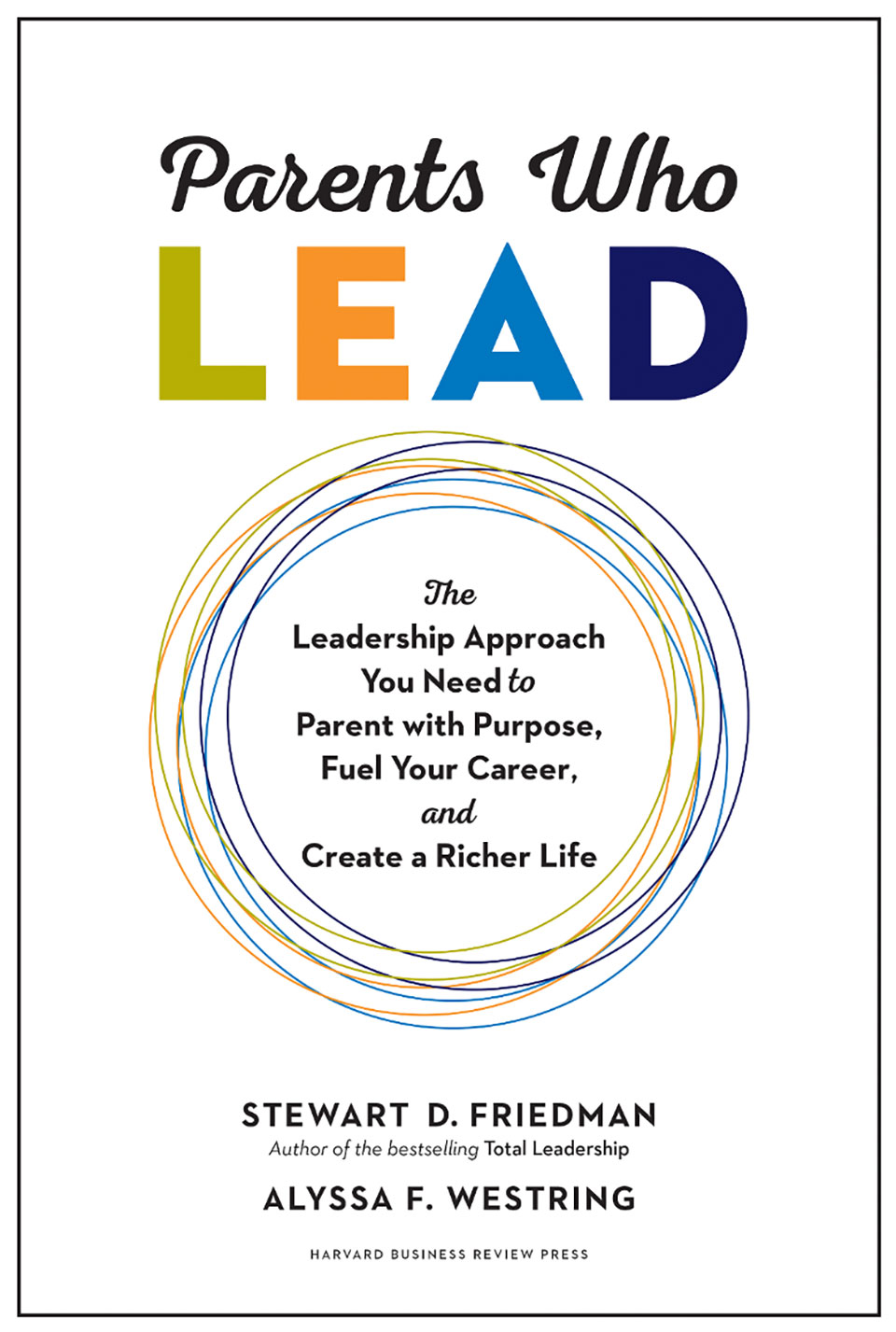Reprinted by permission of Harvard Business Review Press. Excerpted from Parents Who Lead: The Leadership Approach You Need to Parent with Purpose, Fuel Your Career, and Create a Richer Life. Copyright 2020 Stewart D. Friedman and Alyssa F. Westring. All rights reserved.
Written by: Stewart Friedman and Alyssa Westring
Most of us, whether we realize it or not, tend to adopt a trade-off mindset in thinking about the different facets of our lives. We see the different aspects of our lives as a fixed pie, with our time and attention divided into set slices, and we believe gains in one area of life, whether it be in our work or in our family relationships, automatically come with losses to the other areas. The desire for a larger slice here means a smaller slice there.
While we don’t deny that trade-offs exist, our research has shown that it’s fruitful to adopt a more expansive attitude, in which trade-offs are not the default assumption. Instead, we can seek opportunities to create wins as leaders in all the roles we play.
Examine the Four Domains
For simplicity’s sake, we focus on four major areas of life, what we refer to as the four domains: career, family, community, and self.
Taking the four-way view means seeing how these domains of life are interconnected. Of course, different areas of our lives come with obligations that can disturb others. For example, working long, high-stress hours can have a negative impact on all other areas of life. If you’ve ever been snippy at the dinner table after a tough day at the office, you know what we mean.
Similarly, challenges in our family’s lives don’t just magically disappear at work. People caring for sick children, assisting aging parents, or going through a divorce tend to be less productive. Our physical and mental well-being profoundly influences both our work and our private experiences.
Researchers have spent a lot of effort studying various forms of conflict between work and the rest of life, how they disrupt each other. But we like to flip the frame: career, family, community, and self can also be mutually enriching. It’s not always easy or natural to steer clear of the zero-sum mentality, captured in the phrase almost everyone uses to describe the challenge of finding harmony— “work/life balance.” But it’s important to counter our tendency to think in terms of a metaphor of that sliced-up pie where more of one slice means less of another.
There are countless examples that demonstrate the power of envisioning the possibilities for harmony, or four-way wins. It’s obvious that work provides financial resources that are used to support our families. But beyond that, our careers can give us opportunities to express our values, benefit others, build relationships, and establish our identities.
Work can be a refuge, too, a source of renewal. You’ve probably had moments when you breathed a sigh of relief as you sat down at a quiet desk to work after scrambling to meet the incessant demands of young children.
Similarly, our family lives can give us the inspiration to be successful at work. Our partners can be sounding boards for career advice. The various people in our families can give us insight if we are artists, ideas if we are inventors, stories we can tell to bond with colleagues, and so much more.
The four-way view allows us to not just see the many dimensions of our lives but also enables us to cultivate harmony. Here’s what some of the parents we’ve worked with observed when they examined the interconnections among the different aspects of their lives:
- “Satisfaction in one area affects my mood and general happiness and thus allows me to perform well in other areas of my life.”
- “When I work out and take time for myself, I am more likely to respond to my kids with kindness and grace.”
- “When I am particularly happy with family life, or on a really good stretch of running, I tend to take that attitude to work and feel good about myself, and more confident. But I also often find myself letting the opposite happen. When things are particularly stressful at work, sometimes I can be short-tempered and less patient with my family.”
Think about what each of the four domains—career, family, community, and self – means to you. Think about what you do, with whom you interact, what you need, and what you care about most in each of those domains.
Next, think about how much attention you actually focus on each domain in a typical week or a typical month. Focus doesn’t just mean how much time you spend in a particular location. It’s about where your mind is (during your waking hours).
Consider where there may be gaps between what is most important to you and how you actually allocate your attention. Observe how satisfaction in one part influences how things are going in the others.
What ideas occur to you about how changing something in one part might lead to improvements in how things go in other parts? If you were to spend one day a week telecommuting, for instance, how might this affect your engagement with your family, community, and private self? If you were to take your family to the beach rather than going alone to the gym, how would the satisfaction levels with your family and self domains shift?
You’re not alone if you rate your satisfaction as less than perfect across the board in your four-way view. Among the parents in our workshops, not a single person has yet rated their satisfaction with career or family as a 10 out of 10. Life is hard these days, for all of us.
But, remember, when you start out not fully satisfied, this allows room for growth. That’s just math.

Amazon link:

